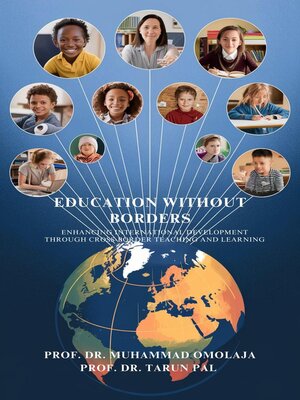EDUCATION WITHOUT BORDERS
ebook ∣ Enhancing International Development Through Cross-border Teaching and Learning
By TARUN PAL

Sign up to save your library
With an OverDrive account, you can save your favorite libraries for at-a-glance information about availability. Find out more about OverDrive accounts.
Find this title in Libby, the library reading app by OverDrive.



Search for a digital library with this title
Title found at these libraries:
| Library Name | Distance |
|---|---|
| Loading... |
Education Without Borders: Enhancing International Development Through Cross-Border Teaching and Learning is a comprehensive exploration of borderless education and its significant impact on global development. Written by Prof. Dr. Muhammad Omolaja and Prof. Dr. Tarun Pal, both esteemed academicians from British American University, Florida, this book sheds light on the transformative potential of cross-border education in enhancing educational accessibility, institutional growth, and intercultural understanding across nations.
With the rapid globalization of education, the concept of teaching and learning beyond national boundaries has become an essential mechanism for bridging educational gaps, especially at the postgraduate level. This book covers key topics, including the nature, challenges, and quality issues in cross-border education. It highlights the regulatory landscape, examining different countries' approaches, from China and Malaysia to the United States and the United Kingdom. By detailing the nature of education and development, it draws connections between educational practices and broader social and economic progress at both national and international levels.
The authors offer a multi-dimensional look at both the positive and critical perspectives of transnational education, using Ethiopia as a case study to illustrate the local implications of borderless teaching methods. They emphasize the role of education as a catalyst for international development and encourage readers—educators, policymakers, and students alike—to reflect on their choices, teaching practices, and the far-reaching impact these decisions have on global progress.
Structured in nine insightful chapters, this book provides a balanced analysis that is well-suited to university academics, educational administrators, and the general public interested in expanding their knowledge on the global dimensions of education. The inclusion of end-of-chapter review questions and past examination questions adds to its utility as both a research reference and a practical guide, making Education Without Borders a vital resource for anyone invested in advancing education and development across the globe.







